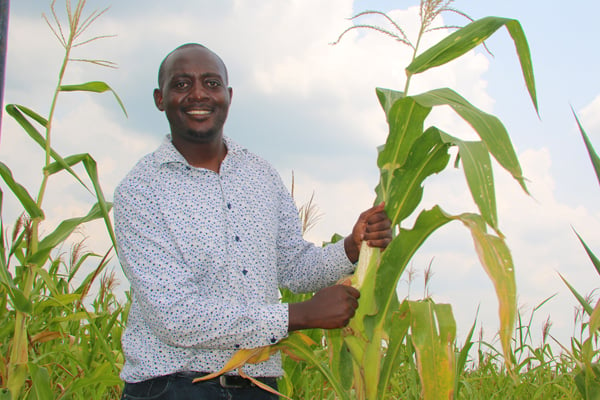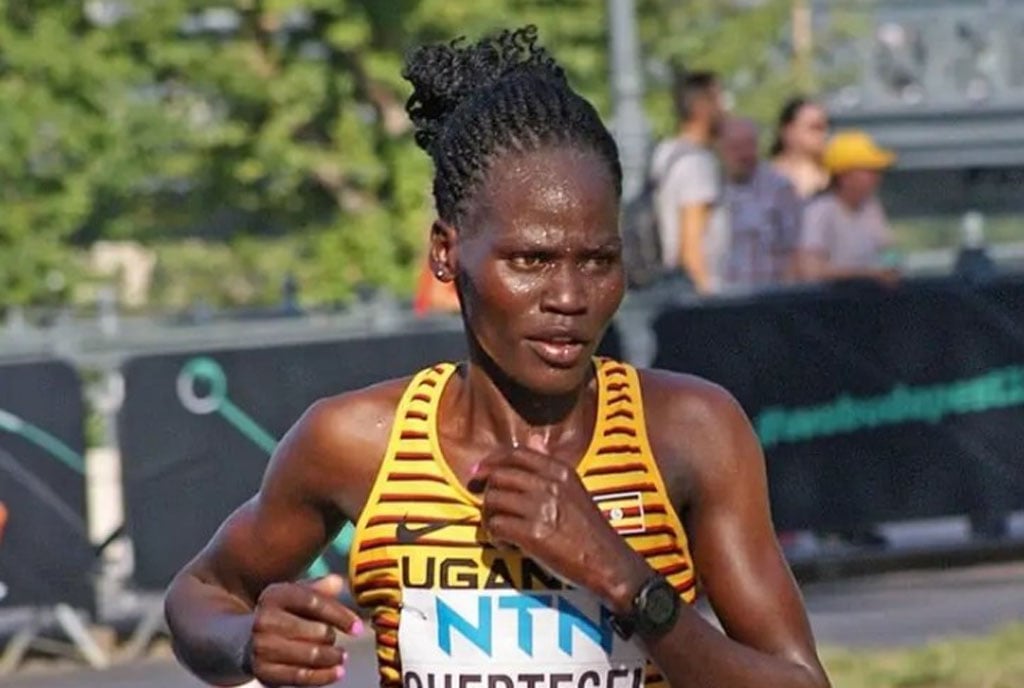Prime
Youth agricultural park empowers young farmers

Khamutima Tumbwebaze, the executive director of YOFCHAN inspects the ready maize on the farm in Nwoya. Photo | George Katongole
What you need to know:
- The Nwoya Youth Agricultural Park tackles land limitations and equips young farmers with modern skills through collaboration and shared resources. Success stories such as Patrick Ouma’s showcase the programme’s ability to empower young people and transform them into thriving agricultural entrepreneurs.
Organic farming combines traditional African knowledge and latest science innovations to benefit the environment and promote a healthy lifestyle.
The techniques used in organic agriculture rely on crop rotation, green manure, compost and biological pest control.
This farming method strictly restricts the usage of manufactured fertilisers and chemicals.
Pests such as insects, nematodes and rodents cause losses to farmers by damaging crops in the field or harvested produce in the store.
Organic pest control
Two years ago, Patrick Ouma, a 29-year-old single father in Nwoya District, faced a common challenge for young Ugandan farmers: limited access to land and resources. He juggled subsistence farming with a boda-boda motorcycle business to make ends meet.
Then, in 2023, the Young Farmers Champions Network (YOFCHAN) opened a game-changing initiative: the Youth Agricultural Park in Nwoya District. Located on 60 acres in Purongo Town Council, Kibar Ward, Pabiet East Cell, this park is designed to address the very obstacles that hold young people back from agriculture as a business.
From boda-boda to thriving farmer
Ouma’s story exemplifies the park’s impact. Through YOFCHAN’s mobilisation efforts, he enrolled in the programme. The collaborative model allows young people to farm together, maximising land use and enabling participation even for those without individual plots.
Ouma has benefited from shared resources such as irrigation systems and access to extension services, educational programmes that equip participants with modern techniques. He credits the programme for teaching him valuable agronomic skills, like timely planting and proper seed selection.
“Before joining the Youth Agricultural Park, I didn’t know much about modern farming techniques. The programme’s extension services completely changed that. Now, I understand things like proper planting times and seed selection, and it’s made a huge difference in my yields,” Ouma says.
The results have been life-changing. After just one harvest of watermelons, Ouma received a share of Shs6m. He used this income to purchase an acre of his own land, invest in a new motorcycle, and send his children to school. He has even started his own farm where he employs a shamba boy.
More than farming
The Youth Agricultural Park goes beyond just land access. YOFCHAN also connects young farmers with potential buyers and markets, facilitating collective marketing for potentially better prices. This holistic approach empowers young people like Jane Abalo to become successful agricultural entrepreneurs. A single mother of two, Abalo joined the programme last year to improve her farming skills.
She received a share of Shs500,000 from the watermelon harvest, which she reinvested in her family land for planting maize and groundnuts. Abalo is proud of the modern farming techniques she learnt, particularly those related to climate change adaptation. She has even begun teaching these techniques to her parents and community members.
The Youth Agricultural Park promotes collaborative farming, where several young people can work together on a single plot. This maximises land use and allows more young people to participate in agriculture, even if they lack individual plots of their own.
It provides shared resources and infrastructure, like irrigation systems and even tractor services. This reduces the financial burden on young farmers who wouldn’t be able to afford such resources individually.
The park facilitates access to extension services, educational programmes that equip participants with modern agricultural techniques. This knowledge transfer improves yields and overall success for the young farmers.
YOFCHAN also connects young farmers with potential buyers or markets. This involves collective marketing efforts, where produce from the park is sold together, and potentially fetching better prices. Essentially, the park empowers young people to become successful participants in Uganda’s agricultural sector.
The park acts as a demonstration plot. Young people from surrounding areas are drawn to it and get inspired by the park’s productivity and collaborative approach.
Partnerships
YOFCHAN recognises the need for further support. Their recent visit to the park was aimed to advocate for access to the Parish Development Model (PDM) for young farmers in northern Uganda.
The PDM, a government initiative to lift Ugandans out of poverty, allocates 30 percent of its revolving funds to youth in subsistence economies for agricultural support.
According to Khamutima Tumwebaze, the visit was aimed at advocating for the youth engaged in farming in northern Uganda to get access to the Parish Development Model.
President Museveni introduced the Parish Development Model concept in February 2022, with the goal of lifting 17.5 million Ugandans out of poverty and bringing the country’s subsistence households into the money economy.
“We have to create a supportive ecosystem by helping the youth in northern Uganda access the PDM funds,” Tumwebaze says.
Sylvester Egumire, public relations officer of the PDM, who recently visited the Youth Agricultural Park in Nwoya. Nnyombi was impressed by the programme’s approach and expressed his optimism for the future of young Ugandan farmers. Here’s what he had to say: “I was impressed by the resources and support offered at the Youth Agricultural Park. This programme has the potential to transform the agricultural sector in Uganda by equipping young people with the skills and knowledge they need to thrive.
Advocacy
Northern Youth MP Boniface Henry Okot emphasises the importance of favourable policies for young farmers in agriculture.
While applauding existing programmes such as the PDM and Youth Livelihood Fund, he identifies land access as a key challenge. He advocates for increased support in acquiring land to address land fragmentation, a major obstacle for young farmers.
Climate change and unpredictable weather patterns pose another significant threat.
Okot highlights the need for a shift from rain-fed agriculture to irrigation and urges increased investment in subsidised irrigation equipment for young farmers.




